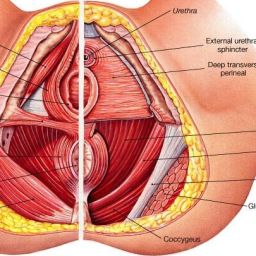
Newborn Vaccinations Explained: Benefits, Safety, and Side Effects
Embark on a journey to safeguard your newborn’s health through essential vaccinations. Discover the significance of newborn vaccinations, including Hepatitis B, DTaP, MMR, and more. This comprehensive guide outlines the recommended schedule, ensuring your infant receives the crucial Newborn vaccinations for a healthy and protected start in life.

Here’s a general Newborn vaccinations list:
1. Hepatitis B (HepB): Given at birth or within the first 3 days after birth.
– Disease: Hepatitis B is a viral infection that affects the liver, leading to acute or chronic liver disease.
– Reason for Vaccination: Hepatitis B vaccination protects infants from acquiring the virus from infected mothers during childbirth or other sources of exposure.
2. Diphtheria, Tetanus, and Pertussis (DTaP): These newborn vaccinations are usually administered at 2, 4, and 6 months.
– Diseases:
– Diphtheria: A bacterial infection that causes a thick coating in the nose or throat, leading to breathing difficulties and potentially life-threatening complications.
– Tetanus: Caused by a bacterial toxin entering the body through open wounds, causing severe muscle spasms and stiffness.
– Pertussis (Whooping cough): A highly contagious bacterial infection that causes severe coughing fits, especially dangerous for infants.
– Reason for Vaccination: DTaP vaccine provides protection against these three serious diseases, preventing infants from suffering severe illness and complications.
3. Haemophilus influenzae type b (Hib): Often given at 2, 4, and 6 months.
– Disease: Hib is a bacterium that can cause severe infections, including meningitis, pneumonia, and other life-threatening conditions.
– Reason for Vaccination: Hib vaccine protects against Hib infections, which are particularly dangerous for infants and young children.
4. Pneumococcal Conjugate Vaccine (PCV13): Typically administered at 2, 4, and 6 months.
– Disease: Streptococcus pneumoniae bacteria cause a wide range of infections, including pneumonia, meningitis, and bloodstream infections.
– Reason for Vaccination: PCV13 helps prevent infections caused by certain strains of the pneumococcal bacteria, reducing the risk of severe diseases in infants.
5. Inactivated Polio Vaccine (IPV): Given at 2, 4, and 6 months.
– Disease: Polio is a viral infection that can lead to paralysis and even death.
– Reason for Vaccination: IPV provides immunity against polio, eradicating the virus and preventing its resurgence.

6. Rotavirus Vaccine (RV): Administered at 2, 4, and 6 months.
– Disease: Rotavirus is a highly contagious virus that causes severe diarrhea and dehydration, especially dangerous in infants.
– Reason for Vaccination: RV vaccine prevents rotavirus infections, reducing the risk of dehydration and hospitalization due to severe diarrhea.
7. Measles, Mumps, and Rubella (MMR): Usually given at 12 months.
– Diseases:
– Measles: A highly contagious viral infection causing fever, rash, and potential complications such as pneumonia and encephalitis.
– Mumps: A viral infection causing swelling of the salivary glands, and in some cases, it can lead to more severe complications.
– Rubella (German measles): A viral infection that can cause birth defects if contracted during pregnancy.
– Reason for Vaccination: MMR vaccine protects against these three viral infections, preventing severe complications and potential birth defects.
8. Varicella (Chickenpox): Typically administered at 12 months.
– Disease: Varicella-zoster virus causes chickenpox, a viral infection with an itchy rash and fever.
– Reason for Vaccination: Varicella vaccine prevents chickenpox, reducing the risk of complications and ensuring immunity against the virus.
9. Hepatitis A (HepA): Given as two doses, often starting at 12 months.
– Disease: Hepatitis A is a viral infection affecting the liver and causing symptoms like jaundice and fatigue.
– Reason for Vaccination: HepA vaccine protects against hepatitis A, reducing the risk of infection and its potential impact on liver health.
10. Influenza (Flu): Usually given annually starting at 6 months, especially during flu season.
– Disease: Influenza is a highly contagious viral infection that causes respiratory illness with symptoms like fever, cough, and body aches.
– Reason for Vaccination: Annual flu vaccination is recommended for infants starting at 6 months to protect them from the seasonal flu and its complications.
11. Meningococcal Vaccines (MenACWY): Sometimes given around 12 months, but the schedule can vary.
– Disease: Neisseria meningitidis bacteria cause meningococcal disease, which can lead to meningitis and septicemia (bloodstream infection).
– Reason for Vaccination: Meningococcal vaccines provide protection against meningococcal infections, which can be severe and life-threatening.
Newborn vaccinations are essential for building immunity and protecting infants from serious and potentially life-threatening diseases. Vaccines are rigorously tested and recommended by health authorities to ensure their safety and effectiveness in preventing illnesses. It is crucial to follow the recommended newborn vaccinations schedule to safeguard your child’s health and the health of the community by preventing the spread of preventable diseases. Please note that newborn vaccinations schedules may vary depending on the country and specific healthcare guidelines. It is essential to consult with your pediatrician or healthcare provider to get the most accurate and up-to-date vaccination schedule for your newborn.
Disclaimer: The information provided in this content is for general informational purposes only. It is not intended as medical or healthcare advice, diagnosis, or treatment. Always seek the advice of a qualified healthcare professional with any questions you may have regarding a medical condition or healthcare decisions.
















